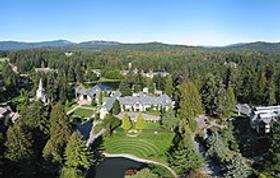Employment: Common Questions And Answers
Thinking about teaching in a boarding school? Got some questions? In this fictional conversation, a job seeker and I chat about looking for employment in a private school.
Credentials
Q. Do I need a teaching certificate to teach in a private school?
A. Not necessarily. It depends on the school. Some schools will employ you without a teaching certificate with the understanding that you become certified within a stated time frame, typically a year. Job advertisements are usually clear about requirements.
Q. Do I need an education degree to teach in a private school?
A. Most private schools value degrees in a subject more than an education degree. For example, if you are presenting yourself as an English teacher, the school will look for a bachelor's degree with a major in American or English Language and Literature. The teaching skills and methodology that you could learn if you did an education degree will be useful; however, most private schools will require you to teach in their own proprietary way. After all, that's why parents are sending their children to boarding school. They value the curriculum and how it's taught.
Q. Do I need to have a master's degree or a doctorate?
A. Your resume will stand out from the competition when you offer a master's or terminal degree. Once again, schools understand that a highly-credentialed faculty is a powerful asset when it comes to marketing what they do. If you have started work





















